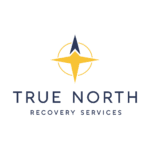Prescription stimulants like Adderall and Ritalin have become increasingly common in treating ADHD and narcolepsy. However, their misuse has led to a growing concern about prescription stimulant abuse and addiction. Understanding the signs, risks, and treatment options is crucial for those affected and their families.
What Is Prescription Stimulant Abuse?
Prescription drug abuse occurs when individuals use medications like Adderall, Ritalin, or Concerta in ways other than prescribed. This includes:
- Taking higher doses than recommended
- Using someone else’s prescription
- Taking the medication without a prescription
- Using it for non-medical purposes (studying, weight loss, recreation)
Common Prescription Stimulants
Amphetamine-based medications:
- Adderall (amphetamine/dextroamphetamine)
- Vyvanse (lisdexamfetamine)
- Dexedrine (dextroamphetamine)
Methylphenidate-based medications:
- Ritalin (methylphenidate)
- Concerta (extended-release methylphenidate)
- Focalin (dexmethylphenidate)
Why Are Prescription Stimulants Abused?
Several factors contribute to the misuse of these medications:
Academic and Professional Pressure
Many students and professionals abuse stimulants to enhance focus, concentration, and cognitive performance. The pressure to excel academically or professionally drives this “performance enhancement” use.
Weight Loss
Stimulants suppress appetite, leading some individuals to abuse them for weight management purposes.
Easy Access
The widespread prescription of these medications makes them more accessible than illicit drugs.
Misconceptions About Safety
Many people believe prescription drugs are safer than street drugs, not realizing the serious risks of misuse.
Signs and Symptoms of Stimulant Addiction
Physical Signs
- Rapid heartbeat or irregular heart rhythm
- Elevated blood pressure
- Dilated pupils
- Decreased appetite and weight loss
- Insomnia or disrupted sleep patterns
- Excessive sweating
- Tremors or shakiness
Behavioral and Psychological Signs
- Increased energy and alertness followed by crashes
- Mood swings and irritability
- Anxiety and paranoia
- Aggressive behavior
- Social withdrawal
- Neglecting responsibilities
- Doctor shopping for multiple prescriptions
Cognitive Effects
- Difficulty concentrating without the medication
- Memory problems
- Confusion
- Repetitive behaviors
- Obsessive thoughts
Health Risks of Prescription Stimulant Abuse
Short-term Risks
- Cardiovascular complications (heart attack, stroke)
- Hyperthermia (dangerously high body temperature)
- Seizures
- Psychosis and hallucinations
- Severe mood swings
Long-term Health Consequences
- Cardiovascular damage
- Mental health disorders (depression, anxiety)
- Cognitive impairment
- Sleep disorders
- Nutritional deficiencies
- Increased risk of stroke
Understanding Stimulant Withdrawal
When someone stops using stimulants after regular abuse, they may experience withdrawal symptoms:
Common Withdrawal Symptoms
- Severe fatigue and exhaustion
- Depression and mood changes
- Intense drug cravings
- Increased appetite
- Sleep disturbances
- Anxiety and agitation
- Cognitive difficulties
Withdrawal Timeline
- 24-72 hours: Initial symptoms begin
- Week 1: Peak symptoms occur
- Weeks 2-4: Gradual improvement
- Months 1-6: Possible continued cravings and mood issues
Adderall Addiction Treatment Options
Medical Detoxification
Professional medical supervision during withdrawal helps manage symptoms safely and comfortably. While there are no FDA-approved medications specifically for stimulant withdrawal, healthcare providers may prescribe medications to address specific symptoms.
Behavioral Therapies
Cognitive Behavioral Therapy (CBT): Helps individuals identify triggers, develop coping strategies, and change thought patterns that lead to drug use.
Contingency Management: Uses positive reinforcement to encourage sobriety and treatment participation.
Matrix Model: Combines behavioral therapy, family education, individual counseling, and drug testing.
Support Groups
- Narcotics Anonymous (NA)
- SMART Recovery
- Cocaine Anonymous (also addresses stimulant addiction)
Ritalin Addiction Treatment Approaches
Comprehensive Assessment
Treatment begins with a thorough evaluation to understand:
- Severity of addiction
- Co-occurring mental health conditions
- Medical complications
- Social and family factors
Individualized Treatment Plans
Effective Ritalin addiction treatment is personalized and may include:
Outpatient Programs:
- Individual counseling sessions
- Group therapy
- Family therapy
- Psychiatric care for co-occurring disorders
Intensive Outpatient Programs (IOP):
- More structured than standard outpatient care
- Multiple therapy sessions per week
- Continued ability to work or attend school
Residential Treatment:
- 24/7 medical supervision
- Intensive therapy programming
- Structured environment free from triggers
Addressing Co-occurring Disorders
Many individuals with stimulant addiction also have ADHD or other mental health conditions. Dual diagnosis treatment addresses both addiction and underlying psychiatric disorders simultaneously.
Treatment Modalities for Stimulant Use Disorders
Evidence-Based Therapies
Motivational Interviewing (MI): Helps individuals find internal motivation for change and resolve ambivalence about treatment.
Dialectical Behavior Therapy (DBT): Teaches emotional regulation, distress tolerance, and interpersonal skills.
Family Therapy: Involves family members in the recovery process and addresses relationship dynamics that may contribute to addiction.
Holistic Approaches
- Mindfulness and meditation
- Exercise therapy
- Nutritional counseling
- Art and music therapy
- Yoga and stress management
Frequently Asked Questions About Prescription Stimulant Addiction
Can You Get Addicted to ADHD Medication if You Have ADHD?
While individuals with ADHD who take medication as prescribed have a lower risk of developing addiction, it’s still possible. Proper medical supervision and adherence to prescribed dosages significantly reduce this risk.
How Long Does Treatment Take?
Treatment duration varies based on individual needs, severity of addiction, and response to therapy. Outpatient treatment typically lasts 3-6 months, while residential programs may range from 30-90 days, followed by ongoing outpatient support.
What Happens During Stimulant Detox?
Detox involves medical supervision as the body eliminates the drug. Healthcare providers monitor vital signs, manage withdrawal symptoms, and provide supportive care to ensure safety and comfort.
Is Relapse Common with Stimulant Addiction?
Relapse rates for stimulant addiction are similar to other substance use disorders. With proper treatment, support, and aftercare planning, many individuals achieve long-term recovery.
Can I Continue Working or Going to School During Treatment?
Outpatient and intensive outpatient programs are designed to allow individuals to maintain work, school, and family commitments while receiving treatment.
Prevention Strategies
Safe Prescription Practices
- Take medications exactly as prescribed
- Never share prescriptions
- Store medications securely
- Dispose of unused medications properly
Education and Awareness
Understanding the risks of prescription stimulant misuse is crucial for prevention. Parents, educators, and healthcare providers play vital roles in education efforts.
Alternative Strategies for ADHD Management
- Behavioral therapy
- Lifestyle modifications
- Non-stimulant medications
- Educational accommodations
Comprehensive Care at True North Recovery Services
At True North Recovery Services, we understand that overcoming prescription stimulant addiction requires comprehensive, personalized care. Located in the Denver Metro Area, our outpatient addiction treatment programs are designed to help individuals facing substance use disorders, including stimulant addiction, find their path to recovery.
Our Approach to Stimulant Addiction Treatment
Evidence-Based Treatment: We utilize proven therapies and interventions specifically effective for stimulant use disorders, including cognitive behavioral therapy, contingency management, and motivational interviewing.
Comprehensive Medical Care: Our experienced clinical team provides high-quality medical supervision during detox and ongoing treatment, ensuring safety and comfort throughout recovery.
Individualized Treatment Plans: We recognize that recovery is deeply personal and not a one-size-fits-all process. Our team develops customized treatment plans that address each client’s unique needs, circumstances, and goals.
Dual Diagnosis Support: Many individuals with stimulant addiction also struggle with ADHD, anxiety, depression, or other mental health conditions. Our integrated approach addresses both addiction and co-occurring mental health disorders simultaneously.
Recovery Support Services
Flexible Scheduling: Our outpatient programs accommodate work, school, and family commitments with evening hours available Monday through Friday until 9 PM.
Family Involvement: We encourage family participation in the recovery process through education, therapy, and support services.
Aftercare Planning: Recovery doesn’t end when formal treatment concludes. We help clients develop comprehensive aftercare plans including ongoing therapy, support group participation, and relapse prevention strategies.
Insurance Acceptance: We accept most major insurance plans, making treatment accessible to those who need it.
Our Mission and Values
Our mission is to facilitate clients on their journey away from substance abuse toward self-discovery and a more fulfilling existence. We believe in treating each person with kindness, respect, and unwavering support, understanding that everyone starts somewhere different, but where we end up is what truly counts.
Our holistic and comprehensive approach encourages clients to explore new pathways that support their recovery, combining evidence-based treatments with compassionate care teams and innovative digital platforms designed to deliver exceptional outcomes efficiently and conveniently.
Getting Help: Taking the First Step
If you or someone you love is struggling with prescription stimulant abuse, help is available. Recovery is possible with the right treatment, support, and commitment to change.
When to Seek Treatment
- Unable to control stimulant use
- Experiencing negative consequences from use
- Failed attempts to quit on your own
- Physical or mental health problems related to use
- Interference with work, school, or relationships
What to Expect in Treatment
- Comprehensive assessment and evaluation
- Medically supervised detox if needed
- Individual and group therapy sessions
- Education about addiction and recovery
- Development of coping skills and relapse prevention strategies
- Ongoing support and aftercare planning
Recovery from prescription stimulant addiction is challenging but achievable. With proper treatment, support, and commitment, individuals can overcome addiction and reclaim their lives. If you’re ready to begin your journey to recovery, True North Recovery Services is here to guide you every step of the way.


